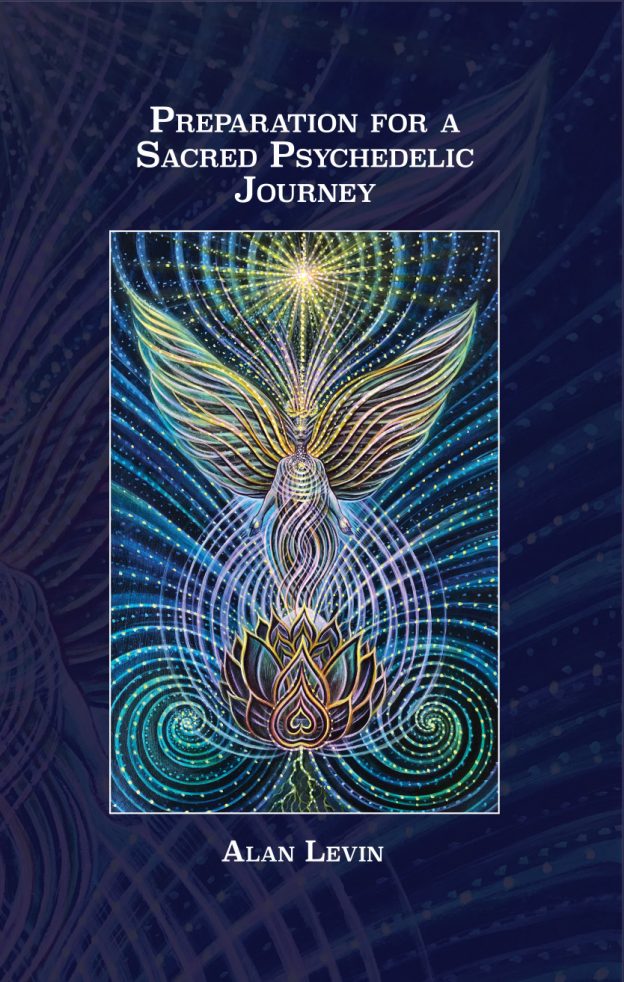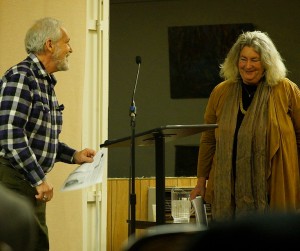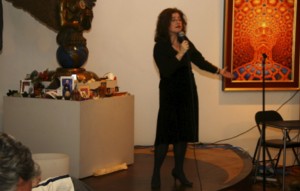| Link to my new book: Preparation for a Sacred, Psychedelic Journey Link to my recent talk at the Gay Buddhist Fellowship: “Psychedelics on the Spiritual Path” “Who am I?” “What am I doing here?” These are the core questions that focus attention on the spiritual path. I would add that the following questions are also worth asking, even though one could say they are essentially included in the above: “What is all this that appears outside of me?” and “What is my relationship with all that?” The latter questions bring the focus to our relatedness and responsibility to the world in which we live. I think that if anyone sincerely asks and meditates with these questions, they will find themselves moved to take part in shifting the direction of humanity towards creating a more just and peaceful world, one in which we live in harmony with all life on Earth. In other words, there will be a shift in consciousness such that their thoughts, feelings and motivations to act will involve a wider and more loving embrace of themselves and everyone and everything. They will care more about creating a loving, global community. The above thoughts come from the fact that every time I experience (or even get close to) the reality of my own true nature, and tune to the essence of all that is around me, I experience compassion and goodwill. I am moved to help bring about a better world. I don’t, and can’t, arrive at that through just thinking about these questions. It is an experience that comes through spiritual practices that take me beyond my thinking mind and that I feel in my heart and body. For many years I have believed that it is only through the wider dissemination of experientially based spiritual teachings that we will avert human caused catastrophe and create a better world. As the Dalai Lama and others have proposed, we need a spiritual or consciousness revolution. I still believe that, and it seems to me more urgent than ever. In this light I am heartened to see that one long suppressed, even demonized, approach to spiritual awakening is surfacing in a positive way in mainstream discourse: psychedelics. This is coming about partly through carefully-worded statements from scientific researchers at university hospitals proving the effectiveness of psychedelic therapies for people with treatment resistant depression, addictions, PTSD, and other clinical problems/disorders. But contained in these reports, somewhat hidden in plain sight, is that the most successful outcomes of these treatments come primarily when the participant has what they deem to be a “spiritual or mystical experience.” While these relatively recent government approved research findings are being reported in mainstream media, the “underground” network of guides, who have been performing psychedelic ceremonies and rituals for groups and individuals for decades, has grown to where they can no longer be ignored. Knowledge of – and participation in – these ceremonies is bursting into the mainstream and some forms of legalization are imminent. An aspect of this is the willingness of many participants, including very well respected thought leaders, to share their experiences past and present. Among people I know, including numerous clients I see as a psychotherapist, many are exploring psychedelics with experienced guides with intentions for psychological healing and spiritual growth. I have witnessed very positive results, often breakthroughs that would involve years of therapy or meditation practice. Because of my own fairly extensive participation in similar ceremonial circles over the past 40-plus years, I am able to support their preparation for these experiences and their integration afterwards. As the lid is lifted off of prohibition, it will be messy. There will likely be a great deal of misuse and abuse of these very powerful substances. People with very limited experience will set themselves up as guides for others. People will take what are potentially life-transforming sacred medicines and use them in recreational settings, and while some will have fun, others will have problems as a result. And there may be damaging consequences for some people for whom psychedelics are not appropriate. Corporations, especially the pharmaceutical industry, are already seeking to capitalize and control the “psychedelic renaissance.” The dominant culture will tend to desacralize, co-opt and make into a fad what could otherwise be a catalyst for a global shift towards a loving community seeking to protect and sustain all life. Psychedelics have great promise and yet are not a panacea. They can help bring about experiences that speak deeply to the questions posed at the beginning of this writing. Yet, those benefits come only when the internal intentionality and the surrounding environment (the set and setting) are supportive of psychological and spiritual growth. Lasting change tends to come when the altered-state journey is seen as one part of a lifelong path of inner work, not a single event expected to solve one’s problems. In light of all of the above, I’ve written and self-published a short book, Preparation for a Sacred Psychedelic Journey. In it I offer a series of suggestions for steps and practices that help one to prepare for a safe and fruitful experience. I draw from what I’ve learned over the last 40-plus years of my own explorations. If you or anyone you know is interested in embarking on such a journey, or is already actively working with these substances, I hope this book will be of value. I’ve kept the price as low as possible. You may also be interested in the podcast recording of a talk I recently gave at the Gay Buddhist Fellowship on this theme: https://gaybuddhist.org/podcast/ Please feel free to pass this invitation on and write a review on Amazon if you like the book. I offer my blessings for a world that honors the spiritual journey and moves towards harmony amongst humans and all life, Here’s comments from several folks who’ve read the book: “In the tradition and lineage of James Fadiman and Ralph Metzner, transpersonal psychotherapist Alan Levin has brought forth an indispensable guidebook for using psychotropic medicines as a vehicle for awakening.” –Joseph Tieger – author of Lately It Occurs To Me: A Memoir of The Civil Rights Movement & The Open Road “The entheogenic journey can help us access elemental aspects of our being and can assist us in growth. It is with proper preparation and guidance that these profound (aspects) are examined. In this book, Alan Levin shares key concepts that are necessary to get ready for the journey. A must read for those who are seeking these essential truths and deep healing.” –JH “I highly recommend Alan Levin’s Preparation for a Sacred Psychedelic Journey book to anyone who is planning on embarking on an altered state journey. Alan’s guidance is invaluable in helping to prepare for a safe and sacred experience. The book is well-organized and covers everything from setting intentions to creating a safe and supportive environment for your journey. “Alan’s expertise and compassionate approach make this book an essential resource for anyone seeking to explore the potential benefits of psychedelics in a responsible and mindful way. His teachings are rooted in decades of personal experience and research, and he provides practical tools and techniques to help you navigate the journey with confidence and ease.….” –roseheart “Alan Levin provides a thorough, thoughtful, and clear guide for preparing oneself for embarking on an altered state journey. Levin’s guidance for intention setting, preparatory activities, and practices for navigating consciousness were very helpful and well-articulated.” –Julia Hume “This is a small but powerful book? My personal work with Alan Levin has changed my life in a safe and most profound way. I highly recommend it to anyone yearning for deeper love and peace.” –Celeste Simone, Voice Teacher/Performance Coach/Director |


